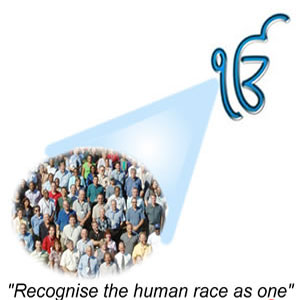
Racism And Global Warming
July 8, 2011
Debt Ceiling Lifts Cover
August 3, 2011By Janice S. Ellis, Ph.D., Kansas City, MO –
Is it reversed racism or hard times that cross color lines? Reversed racism is an emotionally charged occurrence irrespective of what side of the skin color spectrum on which you find yourself. However, to have an exact reading of and response to scenarios where you discover yourself demands a fact-based understanding
The recent study, “Whites See Racism As A Zero-Sum Game That They Are Losing,” provides sensible evidence of the danger of reacting to a given situation according to emotions rather than facts. The national study, co-authored by researchers from Harvard Business School and Tufts University, Associate Professor Michael Norton, and Professor Samuel Somers respectively, supplies initial validation of the emergence of an increasing sentiment among white Americans: The belief that whites are now more discriminated against than blacks; and that blacks are making gains at their loss, and their expense.
The reversed racism belief is based on the opinion of a zero-sum game, meaning that there is merely a small amount of resources. So if someone gets, i.e., gets a job, gets admitted to faculty, then he/she is taking my job, my place. I lose. Abruptly, I’m becoming worse off or marginalized because another’s predicament is improving.
Is that actually the case? What is behind this dismay and growing view? Is reversed racism or hard times impacting our lives?
The answer is both straightforward and complicated. Straightforward in the sense that if we look at the facts, and can suspend our emotional response, it is clear blacks have not gained in the past decade at the expense of whites, as individuals who participated in the study believe. One has only to examine educational achievements for black Americans versus white Americans, the unemployment rates, the quality of housing, and who are in positions of power.
The reply becomes more complicated when we take time to look at the longer view. To say that whites are more victims of racism or discrimination now is not to have any understanding of contemporaneous or historical facts. Blacks have persistently been on the short or losing end of every quality of life indicator: good education, good jobs, good housing, good physical health or access to quality health care services, generation after generation. Moreover, the protracted demanding economic conditions by which we find ourselves have touched people and places in an unprecedented way: white Americans are feeling the impact of no jobs, homes and education being out of reach, less discretionary income that blacks have now been subjected to for decades, centuries.
 So, could it be that the tide of limited resources and limited accessibility isn’t new at all, but finally dispersing? Could it be that the predicament has not switched, but rather merely enlarged? That, there actually isn’t any reversed racism whatsoever.
So, could it be that the tide of limited resources and limited accessibility isn’t new at all, but finally dispersing? Could it be that the predicament has not switched, but rather merely enlarged? That, there actually isn’t any reversed racism whatsoever.
More to the point, why do we choose to have the zero-sum game, the all or nothing perspective, versus the view that it’s right to share the occupations, the wealth, quality of life, and whatever resources are available? Why should one group continually advance at the expense of another?
It does not need to be that way.
Long term, we (whites, blacks, browns, and yellows) must understand that equity in distribution and the access of resources rules the day.
One group will no more have a continuous upper hand because of the color of birth, skin, numbers, or place in life.
This study is still another example of why we need a sustained and honest conversation about race, racism, and race relations in America
Edited and Reprinted with Permission of USAonRace.com




